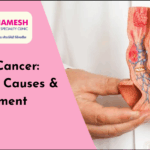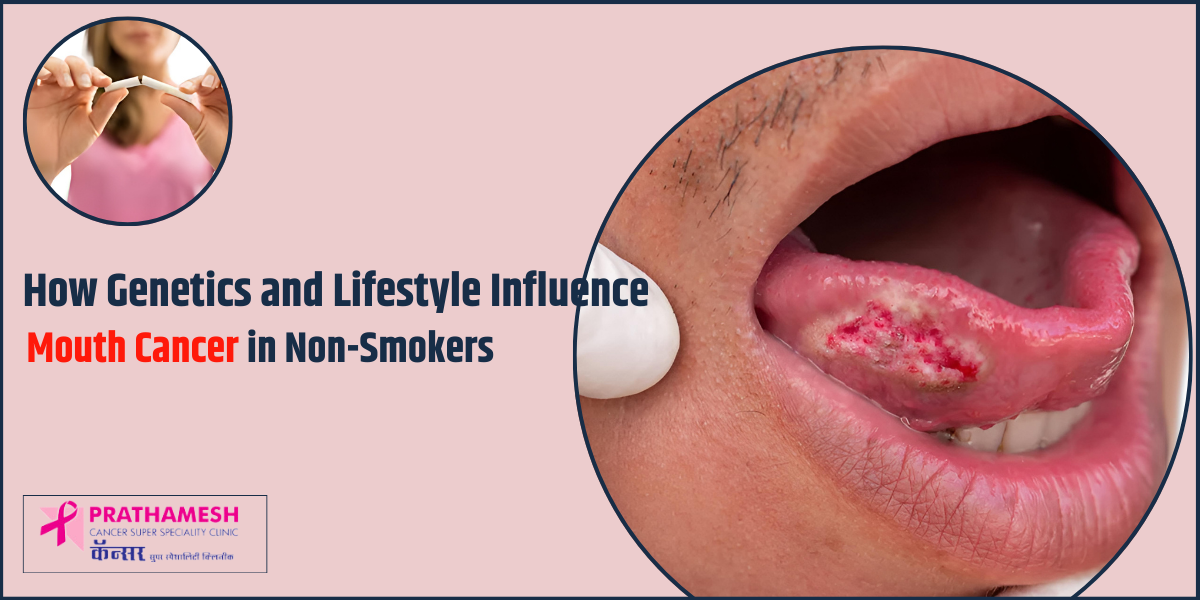How Genetics and Lifestyle Influence Mouth Cancer in Non-Smokers?
Mouth cancer, also known as oral cancer, is often associated with smoking and tobacco use. However, non-smokers are also at risk of developing this type of cancer. According to Dr. Ashish Pokharkar, a leading cancer specialist in Pune, both genetics and lifestyle factors play a significant role in the development of mouth cancer in individuals who have never smoked. In this article, we explore how these elements contribute to the risk of mouth cancer, with insights from one of the top cancer surgeons in Pune.
What is the Most Common Type of Cancer in Non-Smokers?
While lung cancer is the most common type of cancer among non-smokers, mouth cancer, particularly squamous cell carcinoma, is also prevalent. Dr. Ashish Pokharkar, an expert cancer specialist in Pune, explains that squamous cell carcinoma arises from the thin, flat cells lining the mouth and throat, making it the most common type of oral cancer in non-smokers.
What Causes Cancer in Non-Smokers?
Several factors can contribute to the development of cancer in non-smokers, particularly mouth cancer. Dr. Ashish Pokharkar, a renowned cancer surgeon in Pune, identifies the following key factors:
Genetic Predisposition: Genetics can significantly influence an individual’s susceptibility to cancer. Certain genetic mutations may increase the risk of developing mouth cancer, even in the absence of smoking or other known risk factors.
Human Papillomavirus (HPV) Infection: HPV, particularly HPV-16, is strongly associated with mouth and throat cancers. Non-smokers who contract this virus may have an elevated risk of developing oral cancer.
Diet and Nutrition: Poor dietary habits, such as a lack of fruits and vegetables, can contribute to oral cancer risk. Antioxidants and other nutrients found in these foods help protect cells from damage that can lead to cancer.
Alcohol Consumption: Heavy alcohol use is a known risk factor for mouth cancer, even in non-smokers. Alcohol can act as an irritant to the lining of the mouth, increasing the likelihood of cancerous changes.
Exposure to UV Radiation: Ultraviolet (UV) radiation from excessive sun exposure can lead to cancer of the lips, a form of mouth cancer. This is particularly relevant for non-smokers who spend significant time outdoors without adequate protection.
What Percentage of Non-Smokers Get Cancer?
While the majority of oral cancer cases are linked to smoking, Dr. Ashish Pokharkar, a respected cancer specialist in Pune, points out that approximately 25% of oral cancer cases occur in individuals who have never smoked. This statistic underscores the importance of considering other risk factors, such as genetics and lifestyle, in the development of mouth cancer.
Can You Get Mouth Cancer if You’ve Never Smoked?
Yes, it is possible to get mouth cancer even if you’ve never smoked. Dr. Ashish Pokharkar, a leading cancer surgeon in Pune, emphasizes that factors such as genetic predisposition, HPV infection, diet, alcohol consumption, and sun exposure can all contribute to the risk. Non-smokers should be aware of these risk factors and take steps to mitigate them where possible.
What are the Lifestyle Modifications for Oral Cancer Patients?
For those diagnosed with mouth cancer, making certain lifestyle modifications can improve outcomes and reduce the risk of recurrence. Dr. Ashish Pokharkar, a highly regarded cancer specialist in Pune, suggests the following key modifications:
Adopting a Healthy Diet: Focus on a diet rich in fruits, vegetables, and whole grains. These foods provide essential nutrients that support overall health and help the body fight cancer.
Limiting Alcohol Intake: Reducing or eliminating alcohol consumption can lower the risk of cancer recurrence and improve overall health.
Regular Dental Check-Ups: Regular visits to the dentist can help detect any early signs of cancer or precancerous changes, allowing for timely intervention.
Avoiding Excessive Sun Exposure: Protecting the lips and face from UV radiation by using sunscreen, wearing a wide-brimmed hat, and seeking shade can reduce the risk of lip cancer.
Stress Management: Managing stress through relaxation techniques, exercise, and counseling can improve quality of life and overall health during and after cancer treatment.
Mouth cancer in non-smokers is a complex disease influenced by a combination of genetic and lifestyle factors. Understanding these risk factors and making appropriate lifestyle changes can help reduce the likelihood of developing mouth cancer and improve outcomes for those diagnosed with the disease. Dr. Ashish Pokharkar, a leading cancer specialist in Pune, underscores the importance of vigilance and proactive measures in maintaining oral health and overall well-being. Non-smokers, just like smokers, should be aware of the risks and seek regular medical advice, especially from experienced professionals like Dr. Ashish Pokharkar, one of the top cancer surgeons in Pune.




